From a young age, Faisal Quereshy harbored a dream of becoming a doctor. Through sheer hard work and discipline, he turned this dream into a reality. As a dedicated surgeon, Faisal Quereshy embodies his lifelong passion for improving patients' lives, a passion that continues to drive him every day.
Beyond his professional endeavors, Faisal Quereshy cherishes his role as a devoted husband and father, balancing the demands of his career with the joys of family life. His commitment to excellence extends beyond the operating room as he concurrently pursues an MBA, demonstrating his relentless pursuit of personal and professional growth.
Join us as we explore the remarkable journey insights in this edition of Unmasking the Surgeon Faisal Quereshy.
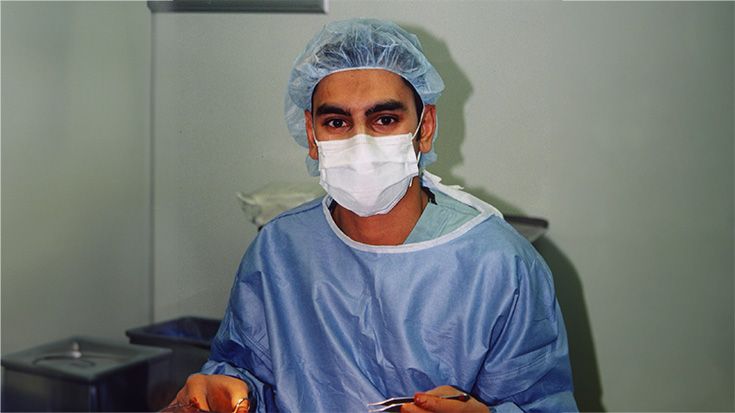
1. How did you come to want to study medicine?
I was raised in Toronto, Canada, so being a product of an immigrant family meant that education and being a professional was sort of a big deal. I’ve always been involved in a healthcare career. My mother was a physician and a family doctor up in Toronto, Canada, and I have wanted to be a doctor since I was a kid. We have a lot of doctors in the family. My mom paved the way to show us what it takes to be a healthcare provider, be motivated, and work hard.
2. When did you decide to specialize in oral maxillofacial surgery?
I was always pre-med in undergrad, and then I had a cousin who got admitted to dental school when I was in my sophomore year of college. He said, “Hey, listen, why don’t you think about dentistry as an option?” I thought that this would be a nice bridge between the science and art of healthcare and being an entrepreneur and business owner in dentistry.
Going through dental school, probably at the end of my second year and beginning of my third year, where I realized that that’s what I wanted to do. Before that, I was really into the prosthetics of dentistry and prosthetic rehabilitation. I really liked prosthodontics quite a bit, and oral maxillofacial surgery is sort of the bridge between all specialties really. We do prosthetics and pathology work, and we are involved with implant dentistry. Oral maxillofacial surgery is kind of built on the foundations of all the different dental specialties, and I really fell in love with that and then pursued that career path.
3. If you had the opportunity to look over the shoulder of any other colleague, who would it be and why?
When I was a resident, Dr. (G.E.) Ghali was a younger faculty member at the time. I heard him speak, and he was so vibrant and motivated.
Ghali was really the first person I had been sort of exposed to as a junior member in academics. He was very charismatic, and he could talk. He had done head and neck cancer fellowships, cranial facial fellowships, and cosmetics, and I thought, this is the guy I really want to become like, and 23 years later, we're the best of friends, and we worked on the American Board of Oral Maxillofacial Surgery Board. We have developed an amazing friendship, but we have never operated together. So, I would love to look over his shoulder and see how he does things and approaches patients. I think that would be really neat to do that one day.
4. What was the most eye-opening event in your career surgically and what did you learn from it?
It's so difficult to pinpoint one major pivotal event. I would say that from a surgical standpoint, I was able to really help a patient, and this is actually published in the AAOMS bimonthly publication - it was titled “The Miracle Jaw Surgery”.
She was a young girl who was about 15 years old. I first met her at the craniofacial clinic at the University Hospitals Rainbow Baby Hospital. She had a condition called nemaline myopathy. Nemaline myopathy is a muscular dystrophy where she was basically intubated on a permanent tracheostomy. That meant a breathing tube to the trachea, and she was on the ventilator, so she needed assistance to breathe, but she was super high functioning, meaning that she could understand and comprehend. But because of her muscle paralysis, she could not close her mouth. She does not have the strength; she hits on the molars, and she had never been able to speak until I operated on her. We were able to do this operation, and what was so remarkable in her post-op visits when the swelling had gone down, she was able to finally give her mother a kiss. She could seal her lips and even pronounce a few words that her mother had never heard her say.
We all help a lot of patients, and every day is a small miracle, but this was truly a miracle jaw surgery that I was so proud to be part of and be the primary surgeon for the patient. That’s something I will always cherish and remember that experience with that family and the gratitude that we get from patients like this.
5. Do you listen to any music in the OR and if so, what kind?
I have a variety of music tastes. I have younger boys, so they obviously influence me. I want to be young at heart, even though I am not young at age anymore. I actually do like hip-hop music, but I play clean versions without profanities. I love U2. I could listen to them over and over again. So U2 and, in contrast, hip-hop is usually what I listen to in the OR.
I’m pretty easygoing, so sometimes I’ll say to the residents, “Hey, what do you guys want to listen to today? Just put it on.” We'll also listen to things like electronic dance music or EDM stuff, which is just kind of mindless repetition music. It's just in the background. I can't work in a silent OR, I have to have some sort of music distraction. But I'm pretty easygoing to be honest.
6. What is it like going back to school for your MBA with everything else that you have going on your career? You know your private practice, going in the operating room obviously being married, having children, what is that like?
MBA is challenging. I'm with students in their mid to late 20s. These are early-career individuals who are trying to strengthen their resumes and their own positions. It's super fun to be with people a little younger, and it keeps me young, also at heart, and I behave a little young as well. It's been great to learn the theory behind a lot of the business management courses, finance, economics, and leadership classes. It's been amazing to listen to some of the concepts. I tell everybody if I didn't have to do homework and exams, I would love this. I would continue this in perpetuity.
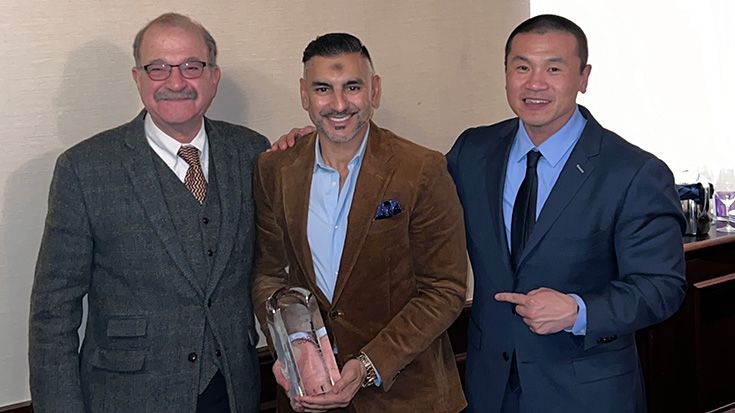
The stress part is because I try to push myself. I want to be a good student, so it gets a little frustrating when I don't grasp the concepts as fast as some of the other people. All the students in class work in groups as well, and they've been super supportive, they know my life and how busy I am. So, it's been an awesome experience so far. I'm probably the second or third oldest in the class. There are a couple of other 50-year-olds in my class, but it's been great.
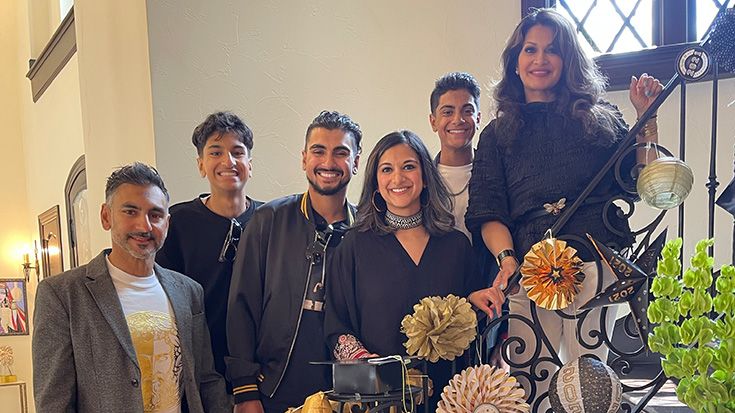
People asked, "Why are you doing it, and what's the purpose?" Well, if I do want to go into a career and management at that either hospital or university level, I think this will give me a little bit more insight even though I've managed a successful business practice with my wife. It has opened up my eyes to other areas of business that I didn't understand fully, and now, a lot of the theory at work will make more sense. So, practicality has come first in my life as opposed to theory, whereas a lot of these kids don't have life experiences. I'm able to at least add that flavor to the class so that's kind of neat to also share my experiences with them. It's been great on a two-way level.
7. What is it like being married to and working alongside your wife who’s also a physician?
The good thing is that we've known each other since she was 13 and I was 15, so we go way back, and she'll probably even correct me and say that we met even sooner than that. We met at a religion camp, and it's funny how religion has played a role in my entire life. It played a role in getting us together because it was under the religion camp we all went to. We didn't go to the same high school. In Toronto, I lived on the West side; she lived on the East side. The camp was centrally located, so all the kids would get funneled there, and then at the end of the summer, you'd go back to your schools during the year, and you wouldn't see these kids until the following summer. So it was over a couple of summers I met her. After that, we continued to see each other during college.
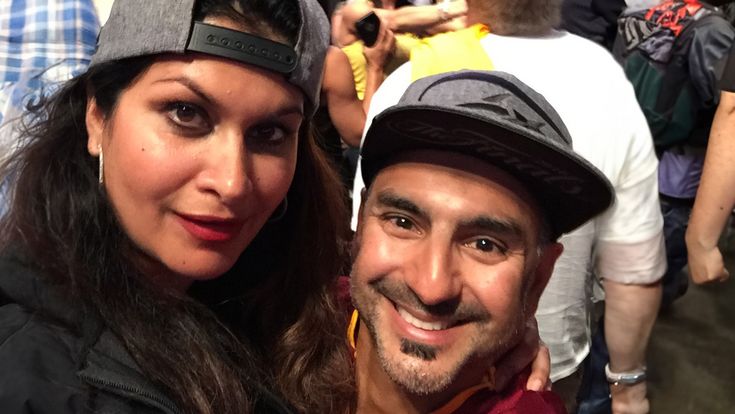
We followed each other's careers; we have grown together since the beginning and have really molded each other into what we felt our lives should be like. We got married after dental school. I first went to dental school in Buffalo. She followed me a year later, and then we both decided that the specialty of choice was for me and how long it would be. I got matched to go to Cleveland, OH at Case Western University. She was in Buffalo and finished her year, so we lived apart for a year; then, she joined me and helped get me through medical school. I dragged her to Salt Lake City for my cosmetic surgery fellowship. Then she decided she wanted to return to school and become an endodontist, so we separated again for two more years. We had two kids at the time, so our lives have been so intertwined that we planned everything together from day one.
Being in practice with her didn't happen until she was into six years of her own practice as an associate when she decided that maybe we should just join together. It was the best thing because the practices thrived under one umbrella. We share one big office and one waiting room; we share a great team of staff that help us to provide the best care possible for the local town of Medina, Ohio. It's been a really great ride. She's my partner in crime; she's my better half, and I really couldn't be as successful in my surgical career, professional career, and family life if it wasn't for a great life partner.
8. What helpful advice would you give to your younger colleagues for their career path?
So really, younger colleagues, even those in residency training, I would say to be constant student of your specialty. Continue to learn, continue to be open-minded, and try to use science to predict outcomes and get out of your comfort zone. Be open-minded to different concepts that might work. Lots of things work for different people, but I'm always open to trying new technology. Personally, I embrace technology with open arms. Many people are afraid of technology, but if there's anything that can help us be more efficient and accurate, you should try to do it. With IPS® and all the digital workflow we have now brought into every aspect of surgery, I would encourage people to continue to be students and continue their education as long as they practice surgery.
9. What were the reasons for you wanting to join SORG and why did you?
When I first learned about SORG and its mission, I said, "This is something I need to be involved with." I was introduced to it by my chair, Dr. Dale Baur, who was also one of the past SORG directors. The mission is truly in education, and I've been doing that for the last 23 years of my career: education and passing down knowledge.
That's why I think that SORG is a great platform for younger and older seasoned surgeons to continue learning new concepts and trends, especially with an international community. I think that's even better SORG is international. I think it really offers a nice platform where you can gain access to a lot of the materials and network with a lot of great-minded and like-minded individuals.
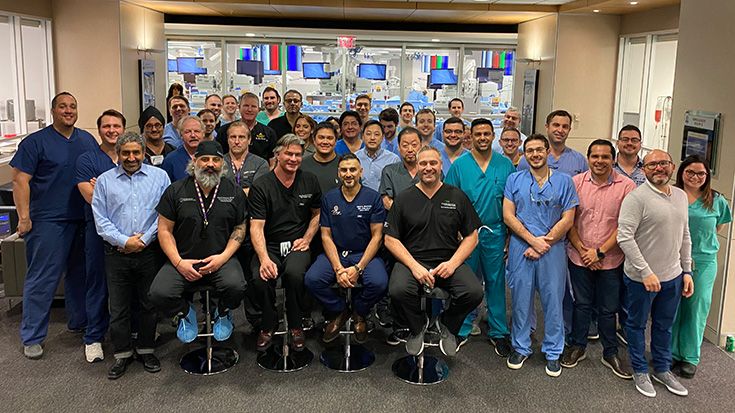
10. Do you have a favorite past memory or a favorite experience being involved with SORG?
Dr. Vinny Perciaccante, who's the current Chair of SORG in North America, was the one who got me involved when he was a director of the SORG workshops and modules. I was kind of propelled into the role of being the Chairman for the Orthognathic Section for North America. Just interacting and putting on the meetings with some great speakers has been a phenomenal experience.
I hope to continue to be involved with SORG at some level, either as a continued speaker, but I think the SORG offers so much to the new generation of surgeons coming up. We should continue to remember the seasoned surgeons as well and keep everybody engaged at all levels of the surgical experience.
11. Are there any final tips or anything that you would say to young surgeons?
I would say that they should enjoy the specialty; it's a great ride. We all have our challenges on a daily level. But when I look back at it in the rearview mirror, now 23 years later, I can say that I have chosen the best healthcare specialty around. We're able to help a tremendous number of patients.
If you desire to pursue higher education through fellowships, please do so. Please don't give up your dreams because of the financial burdens placed on us. We need to continue to spread that knowledge forward, which is one reason we need people to go into academia. Even though the compensation may not be up to par compared to those in the private practice setting, there are many more rewards that you can't put value on that come with an academic position. I'm living proof of that.
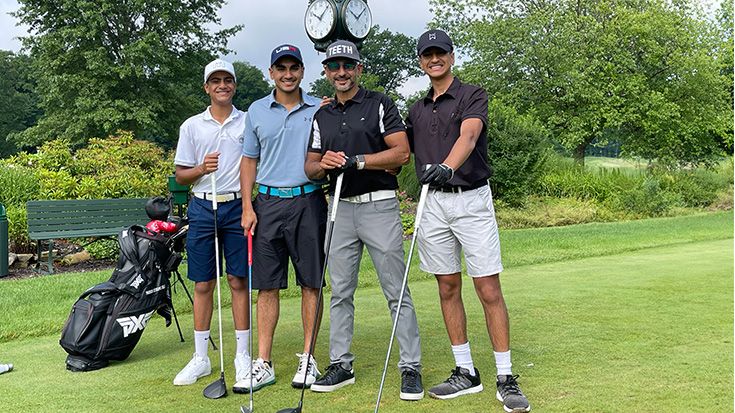
The last thing I would say is to make time for yourself. Take some time to breathe, relax, and have a hobby because life is about balance. It's about balance with spiritual things like religion, balance with work, balance with hobbies, balance with friendships, and it's a daily juggling process. Dr. Dean White, a great friend, mentor, and colleague, retired past ABOMS President, told me that there are four squares of life, personal, religion, family, and friends, that you have to balance between continuously and if the balance is off on one, the other one suffers. So if you think about life like that, then you have an even keel, or even playing field, and nothing gets left behind.